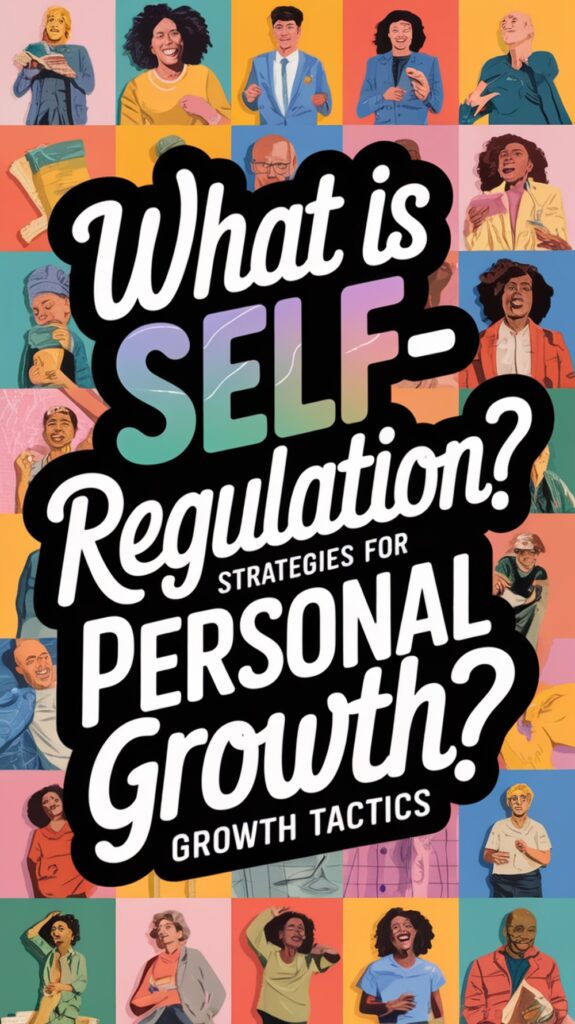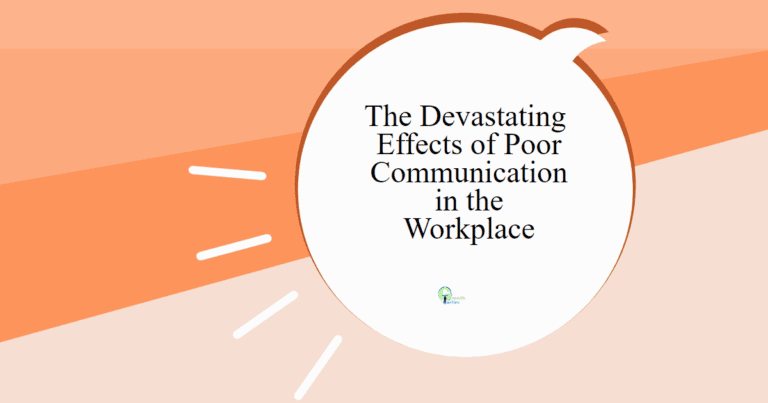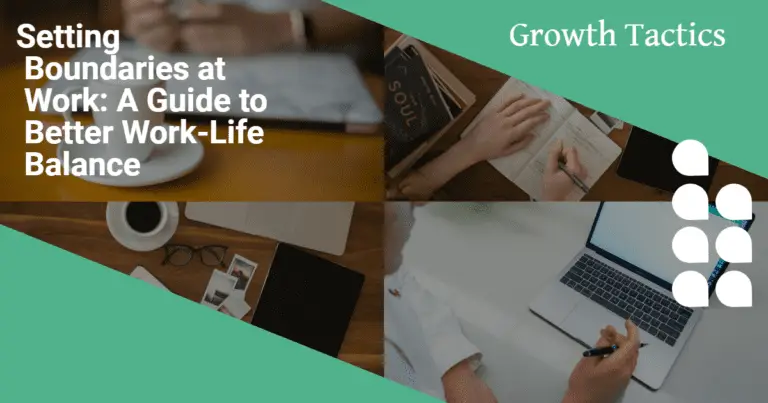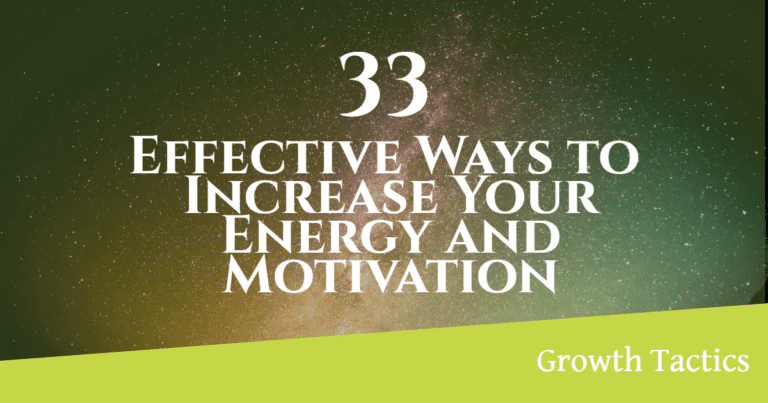Self-regulation means you are in control of your feelings, actions, and reactions. This skill is one of the foundations for achieving your goals in life.
It’s about taking the actions that are most aligned with your values, even when the pressure is on. Let’s take a closer look at self-regulation in action and discuss how you can build this vital skill.
Jump To Section
What Is Self-Regulation?

Self-regulation is the skill that lets you steer your own ship, controlling emotions, thoughts, and behaviors in ways that help you get much further ahead in life. It’s more than just resisting the urge to scream at a colleague. It’s not just about fighting the urge to have that second piece of pie!
This skill is 24/7. It’s the engine that runs behind the scenes as you evaluate your behavior, consider the implications, and plan your response.
It relates to motivation and emotional intelligence, as well. When you self-regulate, you learn to make more informed choices. You’re better able to keep your cool in a crisis and roll with life’s punches!
1. Defining Your Inner Navigator
In its most basic sense, self-regulation refers to “regulation by oneself.” It allows you to stay calm in difficult board meetings, take a moment before you respond in haste, and recover from disappointments.
High emotional self-regulation allows people to avoid making impulsive decisions, such as lashing out at a spouse or making an unwise financial decision. It lends a sort of flexibility, allowing you to recalibrate your emotional reactions when life comes at you with the unexpected.
2. The Core Trio: Thoughts, Feelings, Actions
Just like a machine, your thoughts, feelings, and actions need to work together. Pay attention to how one negative thought can escalate into irritation and lead to a negative action.
Acknowledge how each branch of the trio affects the others, and you’ll be more prepared to end the negative cycle and improve at both work and life.
3. Behavioral Self-Regulation: Steering Your Actions
Behavioral self-regulation is all about ensuring your actions align with your long-term goals. For example, you may have to decline a late-night movie in order to ensure you’re well-rested for a big presentation at work.
4. Emotional Self-Regulation: Managing Your Feelings
This is all about your ability to regulate your emotions and how you express them. Techniques such as deep breathing, positive self-talk, or taking a timeout can help you remain calm when stress strikes.
Practicing emotional self-awareness, taking the time to check in with yourself, will help you identify things that trigger you and implement calming strategies.
5. Self-Regulation vs. Self-Control: Key Differences
While self-control is more about stopping yourself in the moment, self-regulation is more about how you live your life. Self-control could be something like not having that extra piece of cake, while self-regulation is more about setting a rule for yourself that you will only have sweets like cake once a week.
Self-regulation and self-control. While both contribute to regulating emotions and behaviors, self-regulation is the broader, more developmental canvas.
Why Self-Regulation Matters for Success

Self-regulation is central to both personal and professional development. It’s that invisible self-discipline muscle that helps you keep going. It’s what allows you to direct your attention, feelings, and behavior toward more important things.
Maybe you’re just trying to meet work deadlines or keep a complex household running. In difficult discussions, self-regulation is the calm hand on the steering wheel. In fact, research indicates that individuals with high self-regulation live happier and healthier lives.
They are more likely to achieve their goals, have better social skills, and cope with unexpected challenges in life. Here’s a closer look at why self-regulation is so crucial to long-lasting success.
Fueling Your Personal Growth Daily
Have you ever woken up with a purpose in the morning, and it changes your entire day? One simple but powerful practice that can help you cultivate personal growth through self-regulation is the practice of daily intentions.
By reflecting on your day, what went well, and what didn’t, you can begin to notice patterns and adjust your game plan accordingly. Every little habit goes a long way, whether it’s stopping to think before reacting to stress or stopping to align with your highest self.
Boosting Your Emotional Well-Being
Strong self-regulation means better emotional health. People who manage their reactions tend to feel more balanced, even when life gets messy.
Using strategies like naming your feelings, taking a breath, or journaling fosters resilience. Regular self-checks, asking, “How am I handling this?”, keep emotions from running the show.
This steady approach builds confidence and calm.
Sharpening Your Decision-Making Power
Clarity in decision-making begins with self-regulation. When you take a step back and pay attention to your first impressions, you become more aware of the options available to you.
Self-aware emotional people stop to say, “Is this in my best interest?” and that helps you avoid knee-jerk reactions and make better decisions. Shedding light on your decision-making process?
Achieving Your Long-Term Goals
Large aspirations aren’t accomplished with a flick of the switch. Self-regulation enables you to develop SMART goals and follow through on them, even when your motivation wanes.
Staying focused on those long-term goals takes self-regulation. It helps you rise when you want to lie down. Determined people, guided by self-regulation, recover from failures and continue on.
The Undeniable Link to Success
Whether from the boardroom to the family dinner table, self-regulation is a powerful predictor of success. When leaders self-regulate, they create environments of trust, enabling them to make better decisions and develop healthier teams.
Consider any person you look up to. They probably know how to control their urges and maintain concentration when it counts. Developing self-regulation is not only beneficial to you, but it raises the tide for everyone in your orbit.
Master Your Self-Regulation Skills

Let’s be honest, no one is born a self-regulation rockstar. Developing this ability requires some serious self-reflection and a willingness to be uncomfortable, day in and day out. It’s not about never messing up, it’s about coming to the practice, learning from your failures, and changing how you show up.
Self-regulation is an active, ongoing process: you monitor your behavior, spot what triggers you, and tweak your responses to line up with your values. Those who master self-regulation are champions of integrity and serve as consistent role models, fostering trust within their domains.
Those small, ordinary choices add up each day and lead to greater self-regulation.
Practical Daily Self-Regulation Strategies
- Set specific, achievable goals for your day, aim to “complete one report” instead of “repair the entire department.”
- Pause and breathe when frustration bubbles up.
- Use a quick daily check-in to monitor your moods and behaviors.
- Use reminders, sticky notes, and phone alarms to keep you on track.
- Build self-control by following through on habits, despite a loss of willpower.
Mindfulness doesn’t have to be complicated. Daily mindfulness practices train you to listen to feelings, whether it’s anxiety or enthusiasm, before they take over.
With this knowledge, it becomes easier to respond to workplace stress or intense family conflicts.
Mindfulness: Your Awareness Anchor Point
Mindfulness is your anchor. Your awareness of stressors helps you to remain grounded when stress comes crashing down. Engaging in mindfulness increases awareness of emotions, reduces reactivity, aids in impulse control, and fosters cognitive flexibility.
Just five minutes a day can help you develop resilience, helping even the most difficult days feel easier. Here are some more ways you can be more mindful:
- Do a short body scan to observe where you hold tension or tightness.
- Take in nature, using all your senses: smell, touch, sight, hearing, taste.
- Eat with intention and attention. Spend time enjoying your food, chewing well, and appreciating each bite.
- Download guided meditation apps such as Calm or Headspace for more guided and structured sessions.
- Take a yoga class, or just spend 10 minutes stretching and breathing deeply to get in touch with your body.
- Listen to relaxing music and pay attention to what you hear.
Rethink Your Thoughts: Cognitive Tools
Cognitive reappraisal is the process of taking harmful thoughts, examining them closely, and coming up with a more beneficial outlook. Journaling provides a great outlet to process your feelings, and flexible thinking helps you roll with the punches when things don’t go as planned.
Thriving with Self-Regulation at Work
Self-regulation at work is important because we spend a lot of our time and energy in our job. Here are some strategies you can use to be more regulated:
- If you start to feel overwhelmed, take short, frequent breaks to rejuvenate.
- Plan, organize, and prioritize tasks to help you stay on track and focus on important work.
- Get in the habit of using “no” to avoid distractions that drain your energy and focus.
- Employ time management strategies to improve productivity.
- Identify emotional triggers and rewire reactions.
- Develop a supportive workplace to avoid distractions.
- Practice mindfulness and meditation to train and focus the mind.
- Continuously evaluate and recalibrate self-regulation strategies to ensure they are effective and appropriate.
When Self-Regulation Feels Tough

Let’s face it, self-regulation sometimes seems as easy as navigating a sailboat flat pond. On other days, a choppy sea. Some days, it’s like you’re in a war room.
Struggles with self-regulation show up everywhere: work deadlines, parenting stress, even in the snack aisle when you’re trying to eat healthy but those cookies keep calling your name. These barriers usually stem from opposing objectives, lack of motivation, or tension accumulating like clouds before a storm.
No one is perfect. Self-compassion? That’s your safe harbor. Allow yourself grace when self-regulation gets hard.
Understanding Willpower and Ego Depletion
Ever feel like choices are more difficult later in the day? That’s ego depletion in action. It’s when your self-control gets depleted from ongoing decision-making or from fighting off distractions.
In fact, studies have found that your brain’s “willpower” networks become less connected when you are depleted. Decision fatigue kicks in, and all at once, self-regulation goes out the window. Recharge with regular breaks, healthy snacks or mindfulness. These all help reset your energy, so you’ll find it easier to stay true to your resolutions.
Know when you don’t have the energy and don’t set unrealistic expectations. The reality is that everyone’s self-control has a battery life.
Mental Health and Regulation Links
There’s a deep connection between one’s mental health and the ability to self-regulate. Anxiety, depression, or burnout take a toll on self-regulation so that the reserve of emotional and behavioral control is depleted.
When self-regulation is more difficult, mental health is further compromised, generating a negative cycle. Self-care, whether it’s exercise, time in nature, or something else, is the key to recharging one’s personal battery.
Your Brain’s Role in Self-Command
Your executive functioning center, the prefrontal cortex, is your own personal traffic cop. Regulating impulses, directing attention, and keeping the future in mind. This is because executive functions are the brain’s tools to guide your behavior.
Mindfulness-based practices, brain training exercises, or obtaining consistent sleep are all ways to promote cognitive health and help maintain your self-regulation skills. By knowing how your brain works, you can move in the same direction as it, rather than fighting it.
Wrapping Up: Self-Regulation in Real Life
What’s the real takeaway here? Self-regulation is not just a buzzword being thrown around in psychological academic circles. It’s the calm, consistent rock you can lean on to weather the stormy times with coworkers, your family, or anywhere in between.
From keeping cool during a heated family dinner to staying focused when deadlines pile up, these skills show up everywhere. Okay, we all know that some days will try your patience more than others, that’s why the goal is not to be perfect but to be better today than you were yesterday.
As with all things, it becomes easier the more you do it! Keep at it, cut yourself some slack, and notice how much calmer the world becomes.








